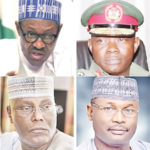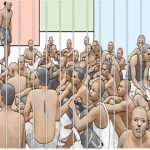ON December 19 2018, protests erupted in Sudan’s eastern city of Atbara after a government decision to triple the price of bread. The protests quickly evolved into nationwide demonstrations against President Omar al-Bashir’s 30-year rule. The series of anti-government demonstrations involved swaths of society, including members of professional classes who for decades were either driven overseas or co-opted by the Bashir regime. Women played prominent roles in the protests that attracted almost all of Sudan’s major ethnic and religious communities and overwhelmed Khartoum, the country’s capital, and other cities. On April 11, al-Bashir was removed from his post and placed under house arrest by the military after multiple months of protests and civil uprisings. The army also ordered the arrest of all ministers in his cabinet, dissolved the national legislature and formed a Transitional Military Council led by his own First Vice President and Defence Minister, Lieutenant General Ahmed Awad Ibn Auf.
Al-Bashir had been in power since 1989. He oversaw the split of the country with the secession of South Sudan in 2011. In the last few years of his reign, shortages of cash, soaring inflation and very high level of unemployment signalled economic collapse of the country due to systematic mismanagement and graft. The appointment of the former defence minister, Ahmed Awad Ibn Auf, provoked outrage among pro-democracy demonstrators and activists and Auf was forced to resign. In the ensuing standoff between the security forces who took power after Bashir’s arrest and organisers of the unrest, Salah-Gosh, the head of the hated National Intelligence and Security Services (NISS), resigned, while General Abdel-Fattah al-Burhan took charge of the military-led council which currently rules the country. Burhan has praised the “peaceful revolution” and the sacrifices made by Sudanese people, especially women and the young, ordered the release of hundreds of political detainees and promised inclusive dialogue with all involved with the aim of forming a civilian government acceptable to everyone.
The Sudanese Professionals Association (SPA), which has organised much of the protests, said it wanted “the transfer of power to a civilian transitional government in which the army participates but not to rule and lead.” The SPA has named a team to negotiate with the military transitional council. Its manifesto, the Declaration of Freedom and Change, demands a “national transitional government formed of qualified people based on merit, competency and good reputation.” Its main aim, it said, was to establish “a sound democratic structure” so that free elections could be held. It seems that the Sudanese protesters have learnt a lesson from previous peaceful revolutions that have swept through North Africa, from Tunisia to Egypt and Libya. They have also learnt from the more recent experience still unfolding in Algeria. These experiences show that the Sudanese movement must overcome not only the military security elite, but also the meddling of foreign powers whose interventions have led to severe repercussions in the earlier revolution countries, especially Libya.
The revolutions in these North African countries point to a widening gap between ordinary people’s needs and entrenched ruling elite and the capacity of the populace for spontaneous public reactions and subsequent organised movements to challenge the situation. People’s power has swept through North Africa. All of these countries have youthful, expanding populations aged 30 or under with expectations on good jobs, education, economic opportunities and more open, democratic governance that have not been realised for many decades. There are similar situations in many countries of sub-Saharan Africa that are notorious for sit-tight leadership. These leaders have been unwilling to promote the positive transformation of their societies. They have subverted constitutionalism, amended the constitutions of their respective countries to perpetuate themselves in office, and conducted elections that are anything but free, fair and credible. The display of the power of the people in Egypt, Algeria and now Sudan should be of a great lesson for countries on the continent of Africa who have experienced growth with poverty increase. Young Africans in these countries have continued to groan under unemployment, disillusionment, poverty and untold hardship. The civil society in the countries must pay attention to the developments in the revolutionary countries and mobilise popular power to cause peaceful change.
Nigeria’s high levels of extreme poverty, huge gap between the rich and the poor, high rate of unemployment and horrendous living conditions make it ripe for an uprising. However, the divisive strategies of those ruling the country have succeeded in shifting the days of popular uprising. They have however generated a resort to different forms of subversive activities, especially crimes such as kidnapping for ransom, armed robbery, killings for money ritual, internet fraud and social violence. These are more dangerous to manage than popular uprisings for reform. They threaten the very foundations of civilised living and the stability of the society. We call on civil society groups to continue to press for governance reform and put the welfare of citizens at the centre of public policy and in the priorities of public officials. They can help to forge and expand social capital and support the empowerment of poor citizens to be conscious of their rights and be mobilised to make government accountable and responsive. Without people’s power, the system may become overwhelmed by illicit and subversive activities that can lead to anarchy.






